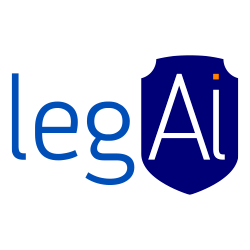Header
icomplai
Current solutions to legal translation are based on machine learning techniques. Such techniques are based on statistics and always exhibit a margin of error. In addition, machine learning, which is based on data and algorithms, is by definition unethical, non-transparent and biased.
LegAi, a project by the university of Luxembourg, offers another approach to translation which is based on ethical AI and offers a translation which has a fully accurate legal quality.
The translation solution is provided as an editor accessible from browsers (either via internet or intranets).
The user then creates a new working draft and copy the intended legislation (e.g. the GDPR).
The user then annotates the meaning of the different legal structures and vocabulary in the legal document (see attachment annotation.png).
The editor then processes the annotations in order to capture the full legal meaning of the legal text (see attachment semantics.png).
Lastly, the editor translates the digital version back into legal text and presents a user (possibly a different user, who needs to have legal
expertise) with two versions of the legal text in the same language (e.g. English). The user needs to compare the two versions and validate that the digital version is correct (see attachment validation.png). In case of deviations, the relevant annotation need to be corrected.
Once the digitalization of the document has finished, the tool supports various actions without a further need of human intervention. It can fully automatically translate the digital version into any language. It can also automatically generate different common scenarios and translate them into comics or animations. It can also provide versions of the legal text intended to laymen or children in any language. All the translations are assured to fully capture the legal meaning with no possible machine induced error (there is no use of statistical methods in the process). Errors can still be introduced by the human user, for example by incorrectly annotating the text.
The tool also allows a very powerful semantic search over the legislation in any of the translated languages (e.g. finding certain obligations for a certain topic).
The editor allows an easy mechanism for locally editing existing translations, for example in case of a change or a new version of a legislation.
To complete the description of the tool, a human translator for each of the intended languages needs to translate once from English into the target language a pre-defined list of vocabulary (e.g. "Data Processor") and a list of pre-defined legal structures (e.g. "General Prohibition"). This process needs to be done once only and per target language.
It should be noted that the tool does not depend on data at all and
therefore might be especially suitable for translations to languages
spoken by a smaller number of people, for which the necessary amount of
data required by machine learning based approaches does not exist.
